A Vision for the Future of Technology
The University of Southern California, a global leader in advanced computing research and innovation, is launching the USC School of Advanced Computing. The newly established school is the centerpiece of a $1 billion university-wide initiative that will house a compendium of its leading researchers in the fields of artificial intelligence, machine learning, quantum computing, augmented and virtual reality, robotics, gaming, health care technology and other human-centered technological applications.
USC School of Advanced Computing to expand Silicon Beach campus, foster diversity in tech
Leveraging its strength in the Southern California region, the frontier-expanding establishment of the USC School of Advanced Computing will include a new Silicon Beach campus, already home to the USC Information Sciences Institute and the USC Institute for Creative Technologies under the USC Viterbi School of Engineering. Additionally, through existing partnerships in L.A.’s tech sectors, the USC School of Advanced Computing will prioritize creating opportunities for traditionally underrepresented groups in the STEM fields to foster a more diverse and innovative tech community in Los Angeles and worldwide.
USC takes a bold step in advancing artificial intelligence and related human-centered technologies with the launch of the USC School of Advanced Computing
Uniquely positioned to become a preeminent center for advanced computing research and innovation, the school’s state-of-the-art facilities, combined with a faculty that includes Nobel laureates, National Academy members and Fulbright Scholars, provide an ideal environment for developing transformative technologies. The USC School of Advanced Computing will be housed at the Dr. Allen and Charlotte Ginsburg Human-Centered Computation Hall, set to open in 2024. With its strong commitment to teaching and research, the USC School of Advanced Computing is set to significantly influence various technology sectors such as health care, quantum computing, computational sustainability and ethical computing.
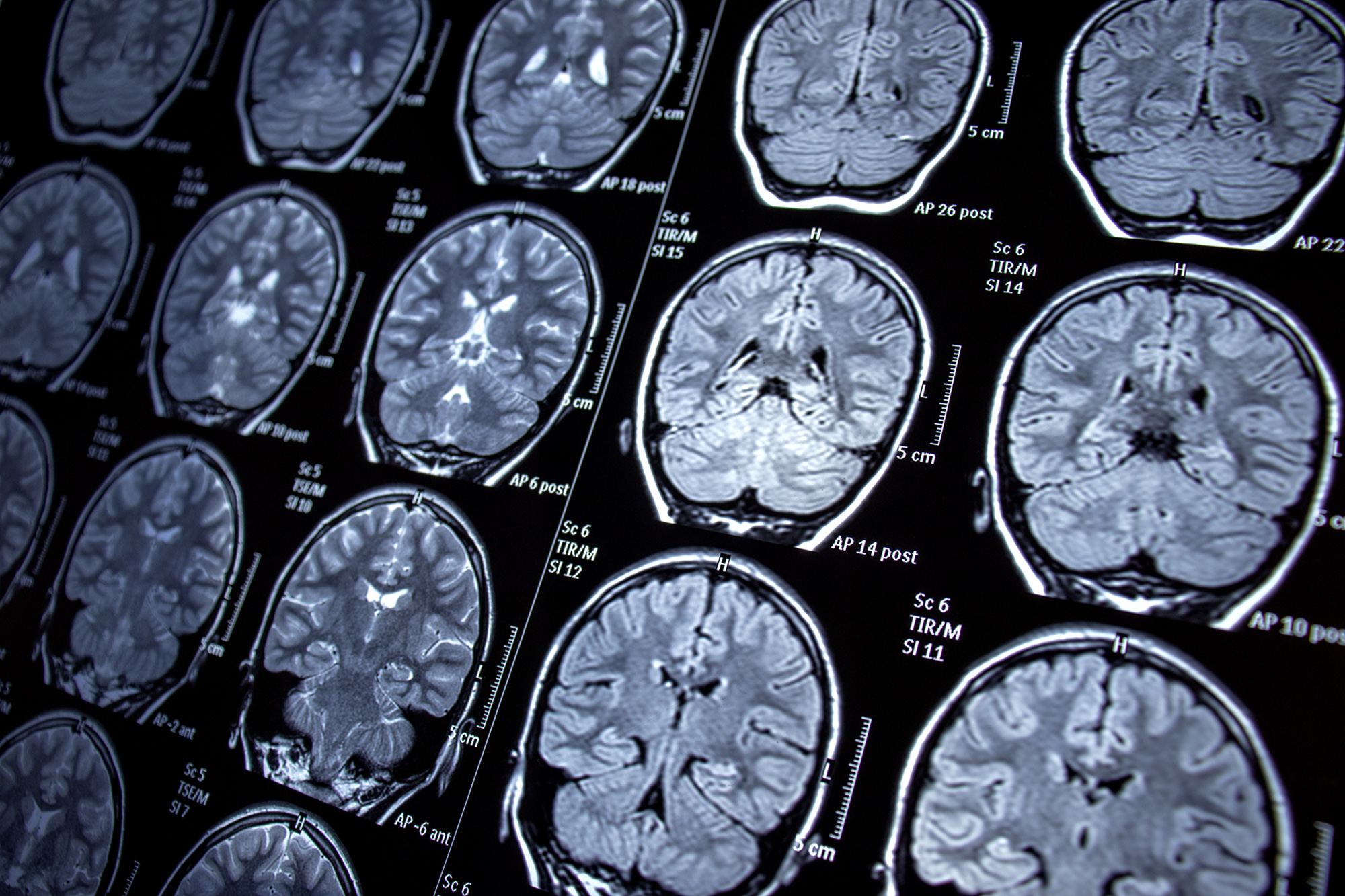
Leading the innovation in health care technology
Health sciences are one of USC’s most productive research areas, with distinguishing strengths in cancer, aging and brain-related research. In recent years, USC has made a renewed investment in health care technology innovation, led by the Alfred E. Mann Institute for Biomedical Engineering and USC Stevens Center for Innovation. Because of its robust health sciences research and development capabilities, USC is set to continue its leadership role in technological innovation in health care and health sciences.

Artificial intelligence aims to outsmart the mutating coronavirus
How do you develop vaccines and therapies that keep up with the ever-changing virus that causes COVID-19? USC Viterbi engineers turned to AI.
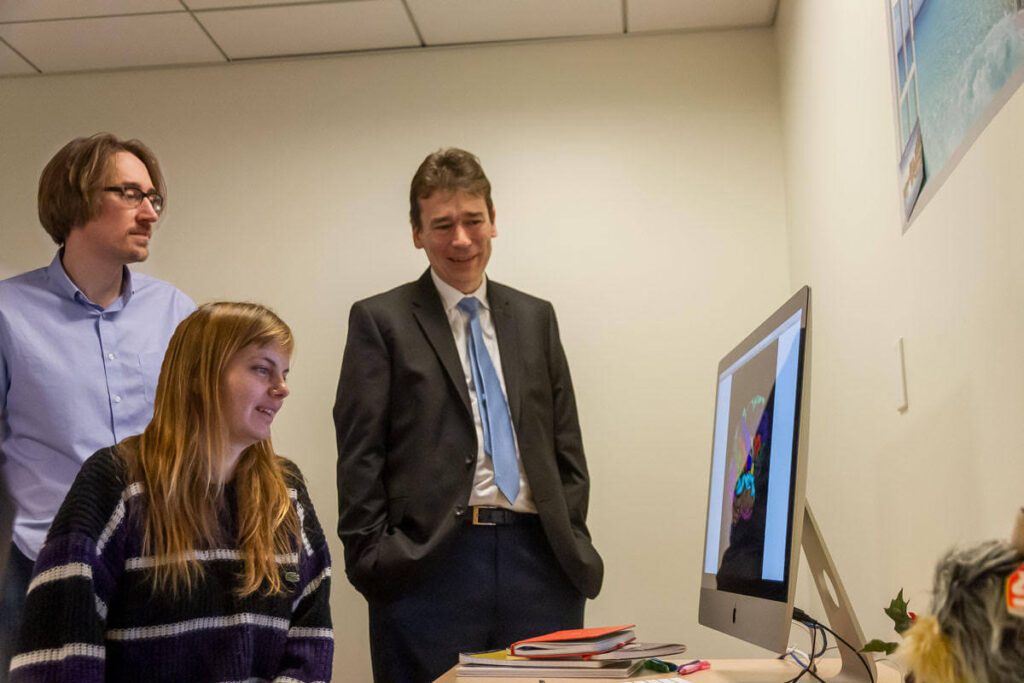
USC researchers use AI to detect early signs of Alzheimer’s
USC researchers found “hidden factors” in medical data that could improve Alzheimer’s disease prediction and lead to better outcomes.
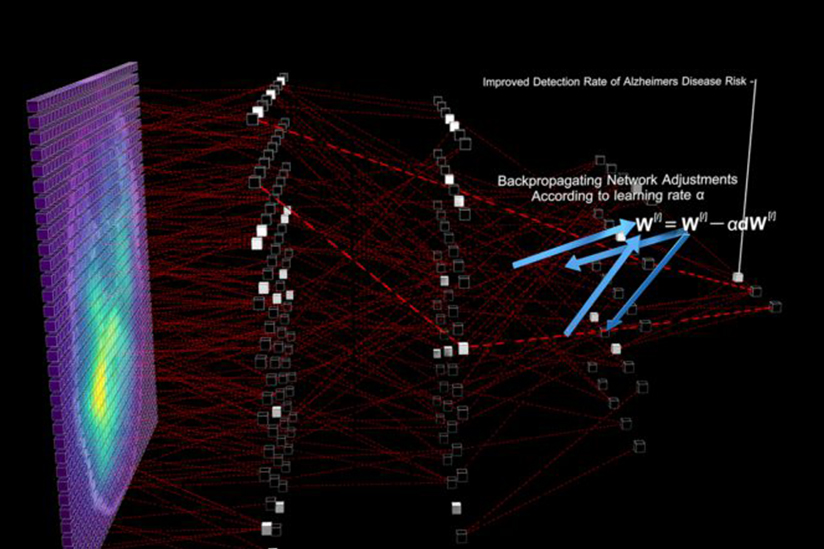
AI amplifies core research strengths at the Keck School of Medicine of USC
Discover how artificial intelligence is being used to help researchers better understand human health and disease.

Revolutionizing quantum computing research
Quantum computing is a rapidly emerging field with the potential to revolutionize how we process vast amounts of information. The USC Viterbi School of Engineering is at the vanguard of quantum computing research, with a dedicated center for quantum information science and technology.
The USC Center for Quantum Information Science & Technology is one of the premier research centers in the country. The new D-Wave Advantage system, housed at the USC-Lockheed Martin Quantum Computing Center, brings quantum system and hybrid solver access to business and research clients wanting a US-based solution.

USC ISI’s QLIlab is using quantum physics to help usher in a new level of communications security
Funded by the U.S. Department of Defense University Research Instrumentation Program, the project will help expand the capabilities of QLIlab into new areas in quantum information sciences.
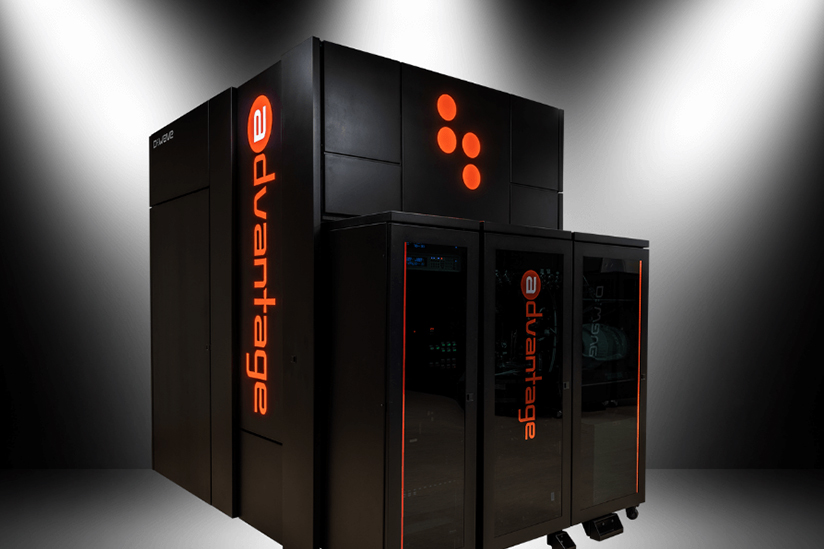
USC ISI works with D-Wave to house one of the first U.S-Based Advantage™ quantum computers
New D-Wave Advantage system, housed at the USC-Lockheed Martin Quantum Computing Center, brings quantum system and hybrid solver access to business and research clients wanting a U.S.-based solution.

USC researchers explore improving measurement tools for quantum physics
The more sensitive measurement tools are, the more information physicists can extract from quantum particles, such as photons.

USC at the forefront of sustainability and technology
A global research institution, USC is at the forefront of developing new technologies and systems that help cities reduce their environmental impact. In addition to its academic programs, USC is home to several research centers working on making cities more sustainable. These centers include the USC Livable Cities Lab, which is working on making urban centers more habitable, and the USC Resilience Lab, which is researching ways to make cities more resistant to natural disasters. USC Trojans are learning how to put these ideas into practice through hands-on work in our labs and centers, such as the METRANS Transportation Consortium, the University Transportation Center and the VREF Center of Excellence.

The minds behind tomorrow’s smart buildings
Workspaces will listen to people, talk with them and keep them safe. What’s next? USC experts are working on it.

Artificial intelligence to fight wildfires
USC to co-lead a National Science Foundation-funded project for controlled burns and fire mitigation.

Seeking ways to reduce traffic jams, USC engineers turn to AI
Aiming for fewer bottlenecks and faster commutes, USC engineers rely on artificial intelligence to bypass congestion and predict probable speeds on the road.

Powering the region’s digital economy and entertainment industries
The digital economy is booming, and USC’s graduates are at the forefront of these rapidly growing industries. The USC School of Cinematic Arts, USC Annenberg School for Communication and Journalism and USC Marshall School of Business are consistently among the best schools in the country. USC’s Game Design programs are also highly renowned in North America.
The region surrounding the University Park campus is also home to a vibrant creative economy, with many jobs in digital entertainment and gaming. USC alumni are well-represented in the industry, and local partnerships provide students with valuable real-world experience.
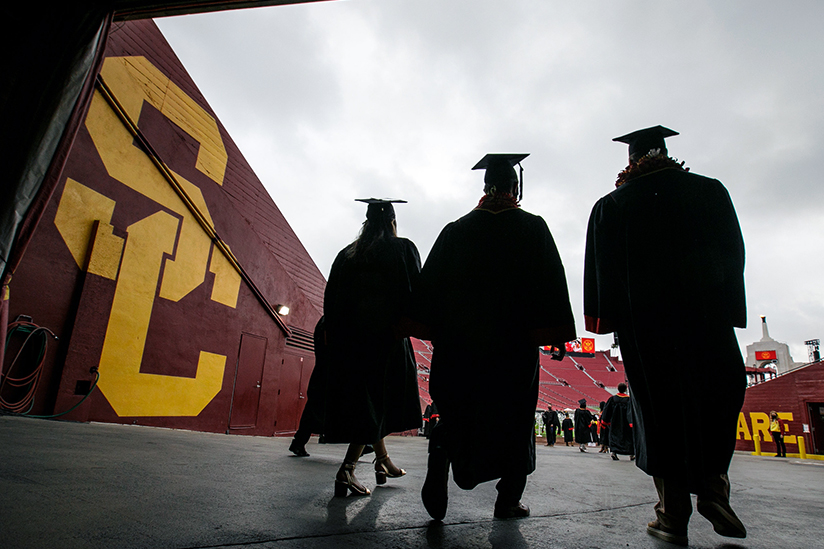
AI for Business: USC Marshall and USC Viterbi announce joint undergraduate degree
The degree will combine curricular expertise from the two schools for digital expertise in a rapidly changing world.

How intelligent workstations will use AI to improve health and happiness
Do you want to be warm or cold? Is it time to stand rather than sit? An interdisciplinary team — made up of designers and USC professors — is using AI to create tech-savvy desks with health and well-being in mind.

How do you motivate workers who are managed by an algorithm?
USC researchers investigate crowdwork — assigning mundane tasks via a website — and determine how to help these workers feel invested in their duties.
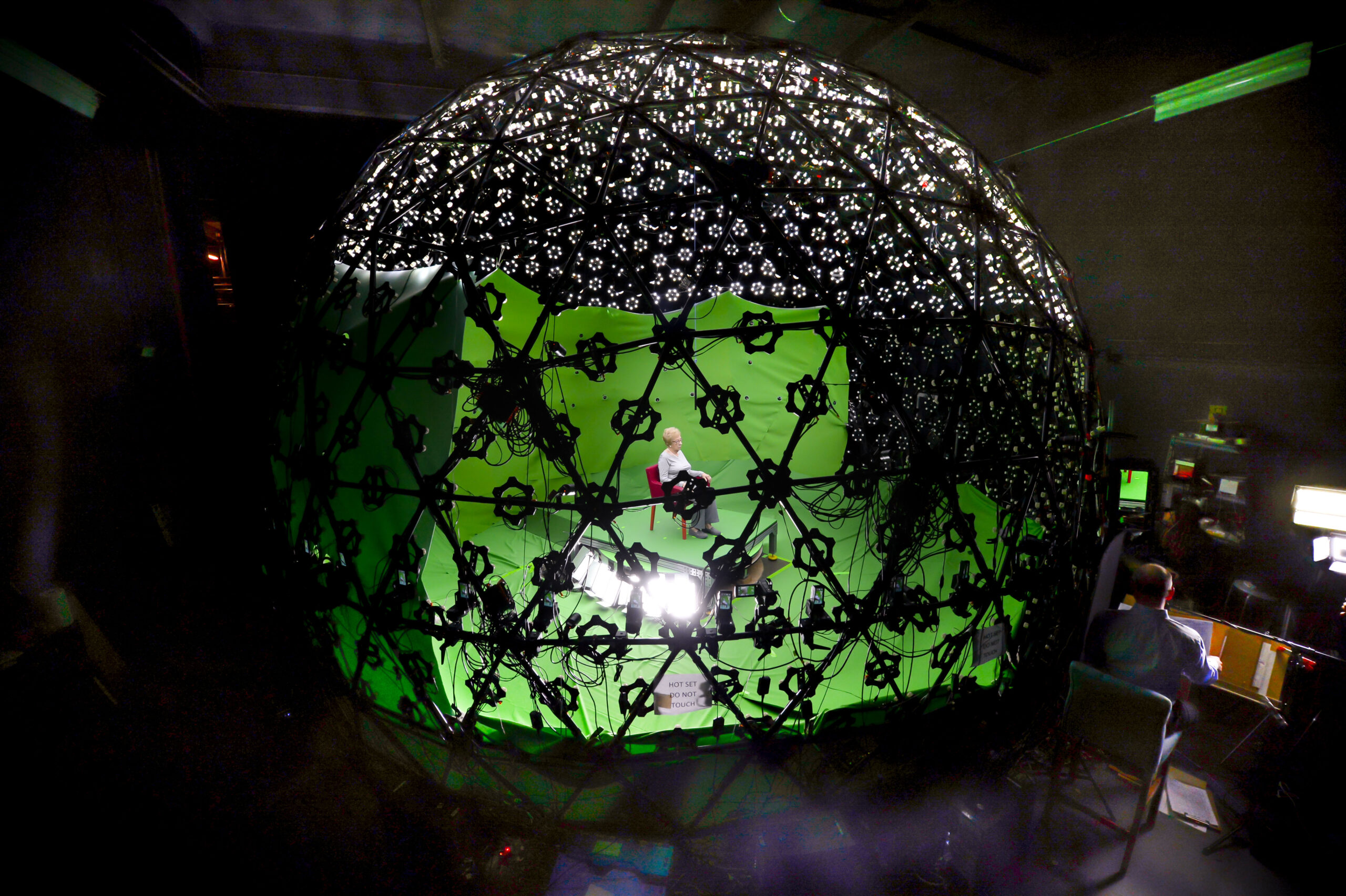
Expanding ethical computing to pace the speed of innovation
The ethical implications of artificial intelligence and other new technologies are a growing concern to citizens and institutions across the globe. USC is committed to developing responsible and ethical leaders in computing, helping prepare society for the challenges posed by new technologies.
USC offers programs on ethical leadership and AI, as well as working with partners in Los Angeles and California to develop effective public policy for new technologies. By preparing our future leaders today, USC is helping to ensure that the ethical implications of new technologies are considered before they are adopted.
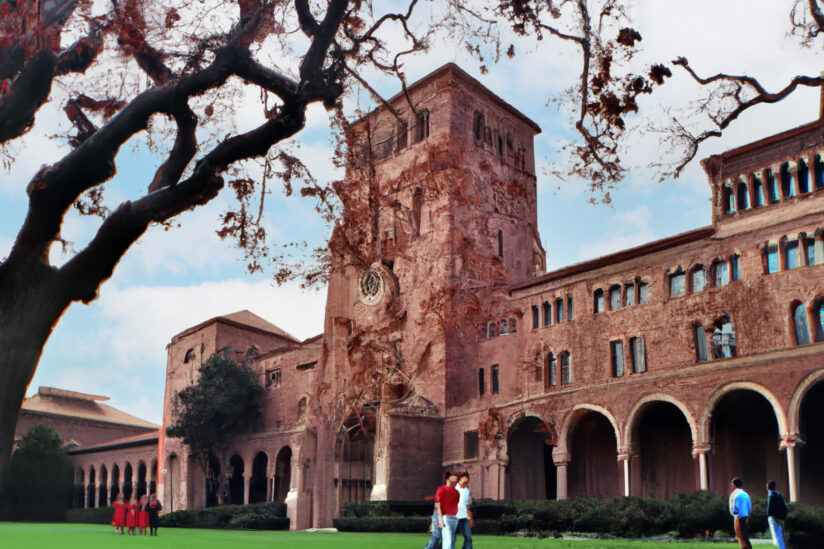
USC dives into AI research, education with new Center for Generative AI and Society
Amid the buzz about generative AI tools like ChatGPT, USC forms research center with $10 million in seed money and influential experts from the fields of computer science, film, media, education and more.
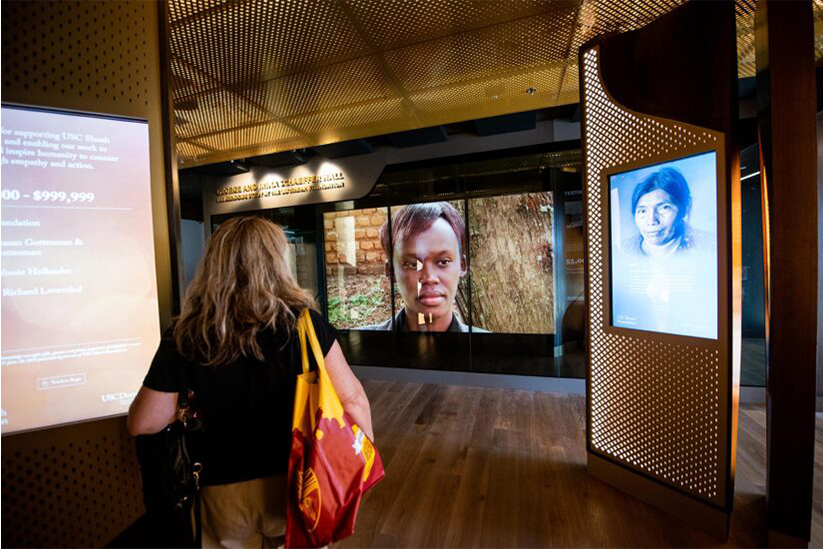
Redesigned Visual History Archive to expand global access to Holocaust and genocide testimonies
Created in 1999 as a one-terabyte cache of Holocaust survivor testimonies, the Virtual History Archive has since transformed into a collection of more than 55,000 interviews — the foundation for USC Shoah Foundation’s global programs.

USC researchers find bias in up to 38.6% of ‘facts’ used by artificial intelligence
A team of researchers from the USC Information Sciences Institute studied two artificial intelligence databases to see if their data was fair. They found that it wasn’t.